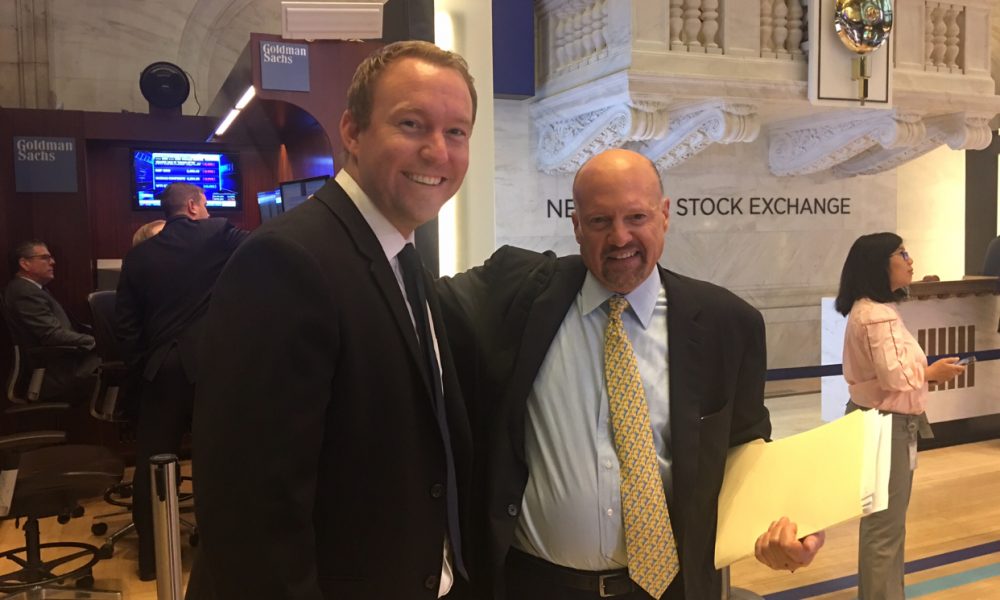

Today we’d like to introduce you to Steven King.
Steven, can you briefly walk us through your story – how you started and how you got to where you are today.
During the summer between 9th and 10th grade I got a summer job working in pest control. It paid $10 dollars an hour and I enjoyed finally having my own money to spend on whatever I wanted. During the work day my older coworkers would listen to news talk radio. There was one particular show (Clarke Howard) that came on every afternoon that was an hour of financial advice for everyday life. The host often brought up the importance of saving money in an IRA.
One day it caught my attention that if I started investing in an IRA in my teens then I could become a millionaire by retirement. Well, I was raised in a middle class home and never even considered it possible to become a millionaire in my lifetime! This concept of putting my money in an IRA really appealed to me. I was so excited at the thought that, one day, when I retired I too could be a millionaire! So I began saving a little bit each week. By the time summer was over and it was time to go back to school (10th grade), I’d saved about $900 dollars.
I was never very good in school. I was outspoken. Teachers couldn’t stand me. I was made fun of relentlessly. And was, in fact, failing at least two classes right at the start of 10th grade (Algebra didn’t make sense to me! This was math, not English, why were there letters?!) So I began to search the internet and learn about the stock market. I was going to put the $900 dollars I’s earned over the summer to work. So everyday when I got dropped off at school, I’d walk in the front door and right out the back door. I’d go to Starbucks all day instead of high school. On my laptop, I’d learn the fundamental and technical analyses of how to trade stocks.
For some reason, it all just made sense to me. Whenever I came across something I didn’t understand in the financial literature, I’d just look up its definition. “This isn’t so hard,” I thought, “I’ll just manage my own money.” So, with the help of my father, I opened up a brokerage account and deposited my $900. I placed my first trade in a stock that was $0.70 cents per share, because, to me, it looked like it was about to double. Well the next week, it did. It went up to $1.40. I had just doubled my money! I had just made $900 dollars–an entire summers work– in a few days. I was hooked. From that point on, I never stepped foot in my high school again.
By Christmas, my personal account had grown to $40,000. And by the end of the school year when I would have been finishing 10th grade my account was now worth over $90,000. Here I was, a 10th grade drops out, who had just made more money than my parents do in a year. So I did what any logical and reasonable teenager would do (you know this isn’t going to turn out well, right?). I officially dropped out of high school, went to a luxury hotel in the Caribbean, and rented out the presidential suit, where I proceeded to live and trade stocks. My success continued and hundreds of thousands of dollars would eventually be made. I’d buy houses and cars for straight-up cash without financing them.
I think the funniest story I can remember is when an attorney for the counter-party asked me how I would be financing a house and I asked him if I could just pay him in cash for it right there on the spot (The truth was, I didn’t even know what the word “financing” meant). He looked at me like, “who in the hell is this 18-year-old kid with the briefcase of cash?” Of course, it was easy to look from the outside and think I had it all. However, that couldn’t have been further from the truth. All that money had made me cocky, prideful, and completely selfish to the point where there weren’t many people who wanted to be my friend, let alone even be around me. In fact, I was completely alone. I distinctly remember what I now refer to as “the of the worst day of my life”.
It was a Friday afternoon and the stock market has just closed. I had made more money that day than I had ever made in a single day before, $280,000 in one day. And I remember thinking “I can go anywhere in the world right now, go do anything I want.”
But the devastating truth was, I had absolutely no one in my life to go anywhere or do anything with. That was the day I learned the priceless value of people, of relationships, and what true wealth really is. And to be honest I was completely bankrupt, even with all that money I was mentally, emotionally, physically, and spiritually–bankrupt. Then things got worse. Way worse. About that same time, I got a notice from the IRS. No one had ever explained taxes to me before (I hardly had a 10th-grade education). It turned out I has spent way too much money, well over half my money, in fact, and I owed $170,000 more than I currently had in my bank account to the IRS. I was ruined.
The IRS seized every asset and bank account that I owned right down to the very last penny. I distinctly remember a homeless man asking me for 1 dollar and me replying, “Sir, you’re about $170,000 richer than I am right now.” At this point in my life, with no high school degree and no way to earn back the $170,000 dollars I feared I would have to get a minimum wage job only to work the rest of my life doing something I hated as a slave to the IRS, paying every dime that came in back out towards my debt. My life, it seemed, was over before it had even begun. I swore on that day that if I could ever turn my life around again and find success that I would do it differently next time. That next time I would NOT measure the success of my life in dollars earned, but rather the number of people I could help and lives I could save.
But that was no matter then. I had to figure out a way to make money, and fast—because along with living off ramen noodles for breakfast, lunch, and dinner—the loss of my house, car, dog, the love of my life, respect of my friends, family and ultimately myself had me close to the jumping off point. So I searched for jobs that paid a great deal of money that a person could acquire with no high school degree. They were all very dangerous jobs but at this point, I have nothing to lose. So I went to work on an offshore oil rig in the middle of the ocean. The work was relentless. 12-hour shifts with no days off. However, the huge salary allowed me to pay back the IRS and become debt-free within a year and a half.
After working on an offshore oil rig, I found that most things in life weren’t that difficult anymore (comparatively speaking). So I got my GED and went to college. I wasn’t ever going to trade stocks again until I at least had a degree to fall back on. While most classmates complained about how hard the college work was, I sailed right through undergrad with straight A’s.
After a couple years of graduate school, I met my (now) business partner who shared in the same dream I had about measuring success in people helped, and lives saved. So we created a hedge fund with that goal in mind: to use one of the most powerful capitalistic entities on earth, for doing good, to one day become one of the worlds largest philanthropic organizations, and to leave and handprint on the planet that could be seen for generations to come. So we named the firm “Diakoneo” which comes from the Greek meaning “To serve, to provide the things necessary to sustain life, to take care of the poor and sick.” Our firm has dedicated to give 50% of our profits to causes like human trafficking, the global water crises, children hospitals and cancer research, drug and alcohol abuse, orphans and adoption as well as many others.
Today we’re coming up on our second year in business.
Overall, has it been relatively smooth? If not, what were some of the struggles along the way?
There are a few lessons I’ve learned in entrepreneurship:
1. It’s always going to cost twice as much and take twice as long as you thought it would.
2. There will always be a problem, but that doesn’t mean you can’t still be grateful.
(I do this in life as well as business. I’m always reaching for that next dream, that next goal. I’ll be happy when ____ (blank) happens. Then it happens but you find out that there’s a new set of problems to deal with. So the temptation is to look to the next goal and say: “well then I’ll be happy when ____ (blank) happens”. And the truth is that if I were to go back in time and tell myself a year ago where I’d be today, then I would have been ecstatic. I wouldn’t have cared about any problem I have to deal with today, I would be happy just to have gotten to that next goal. At least, until I get to the goal and there are new problems. So I can either let those problems bum me out (which is really just a form of selfishness disguised as self-pity that doesn’t serve anyone), or I can just be grateful that I am where I am, and realize that in each new level of success I reach, there will always be another problem, but that doesn’t have to stop me from being grateful.
Diakoneo Capital Management – what should we know? What do you guys do best? What sets you apart from the competition?
We are an alternative investment fund company that focuses on delivering growth, preservation, and impact. With almost 4 decades of individualized trading success and deep expertise in the commodities markets, Diakoneo Capital delivers returns through its quantitative-based, futures option premium strategy. By engineering a probabilistic approach, we are able to create a highly probable, directionally neutral portfolio with the support of clear quantitative data while always maintaining an un-correlated position with the equities market. While Diakoneo Capital’s returns are the emphasis, the company is changing the very definition of “impact investing”. The company gives half of its profits – up to the maximum allowed by tax law – to local and global causes such as human trafficking, global water crisis, orphans and adoption, addictions and recovery, children’s hospitals, among other causes.
Obviously, the thing that we’re the most proud of and what sets us apart is our dedication to serve. We never use investor money to donate to any of our causes, that money comes right out of our firm’s profits. So accredited investors get to enjoy the same returns and fee structure they would anywhere else on Wall Street. The difference is that we take those fees and donate half of them to charities instead of buying private yachts and airplanes. Our number one goal is getting the investor the best return for their money possible. After that, I measure my success in people helped, lives changed and saved, rather than how much I can line my wallet.
What is “success” or “successful” for you?
Professionally my number one goal is relentlessly working to provide my investors with the best possible return on their money. I take our returns very seriously and only not think of each individual investors money as my own, but more important than my own. I typically perform better for others than I would if it were my money in a personal account.
However, personally, I define success as how many people did I help today? Was I kind and loving towards all? What did I do today to strengthen a relationship I have? Was I thinking of myself most of the time or was I thinking about what I could do for others? Today I measure success, not in dollars earned, but lives changed and saved.
Contact Info:
- Website: www.DiakoneoCapital.com
- Phone: 678-577-9978
- Email: Steven@DiakoneoCapital.com








Getting in touch: VoyageATL is built on recommendations from the community; it’s how we uncover hidden gems, so if you know someone who deserves recognition please let us know here.













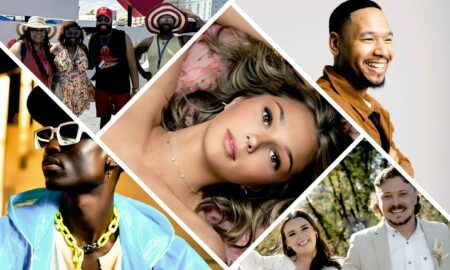

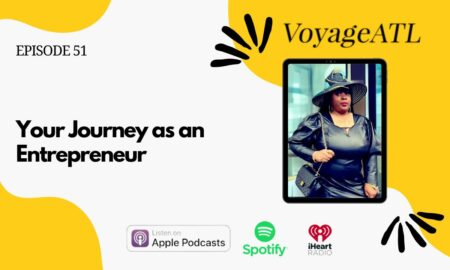
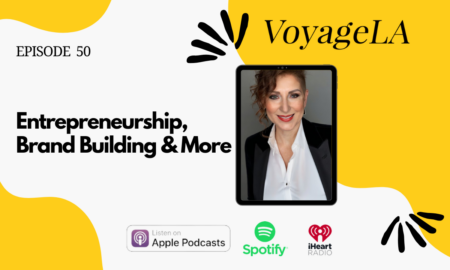
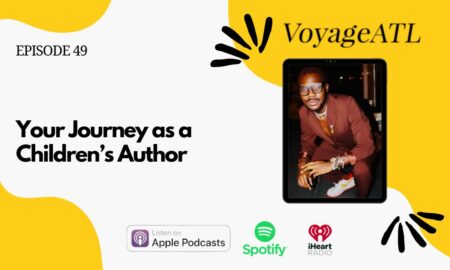
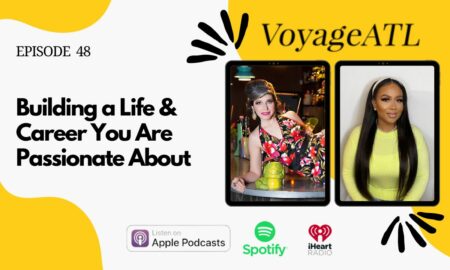
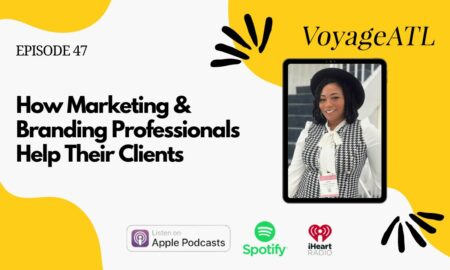
John Regan, CFA
January 16, 2019 at 9:37 am
What an incredible story!